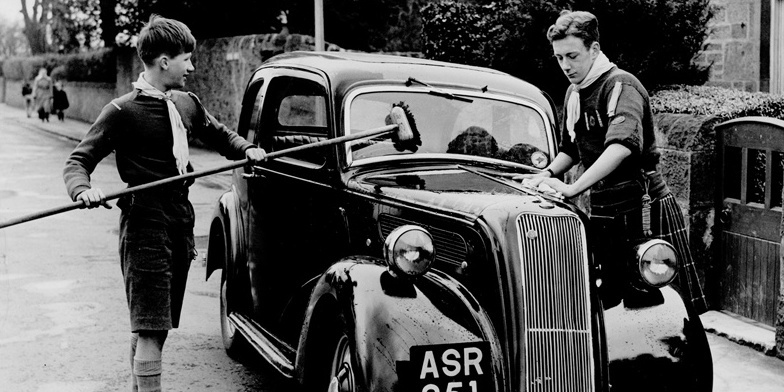Memories of a more innocent age have been sparked by news this week that The Scout Association is to launch a community challenge week.
The volunteering to work on local projects to underlines the Scouts’ long-established commitment to service but will be different from the days when young boys went round knocking on doors during Bob-a-Job Week.
That came to an end 20 years ago after boys were threatened by people who tried to take their earnings and child protection worries put a stop to the boys chapping on strangers’ doors.
Hamish Strachan, the Scouts’ deputy district commissioner for Dundee, joined the cubs as a 10-year-old in 1966 when children were more able to roam free.
He has many happy memories of doing a variety of jobs, raising money during Bob-a-Job Week in the Fintry area.
Not only was society different, but so was the money.
Mr Strachan said: ”We got the equivalent of five pence (a shilling known as a bob) for a job. If you were really lucky you got a bit more.
”One man paid us £2 to clean out his greenhouse which, in those days, was a phenomenal amount of money. We washed cars, we dug gardens anything people asked us to do. We got stuck in about it and everybody enjoyed it.
”You were trying to get as much money as you possibly could and, in those days, I was in the 22nd Fintry Scout Group and the money went to them.”
Mr Strachan said: ”We had a card and people wrote their name on it and what job you did and what they paid you and at the end of the week the Scout leader totalled up how much you had made.
”But that was back in the 60s and 70s when there was not the same thuggery as there is now.”
He said that in later years boys were targeted as ”easy pickings” and the annual fundraiser which started in 1949 was stopped.
He is awaiting details of the community week planned for next spring but said it would involve more than 1,000 Scouts in the Dundee area.
